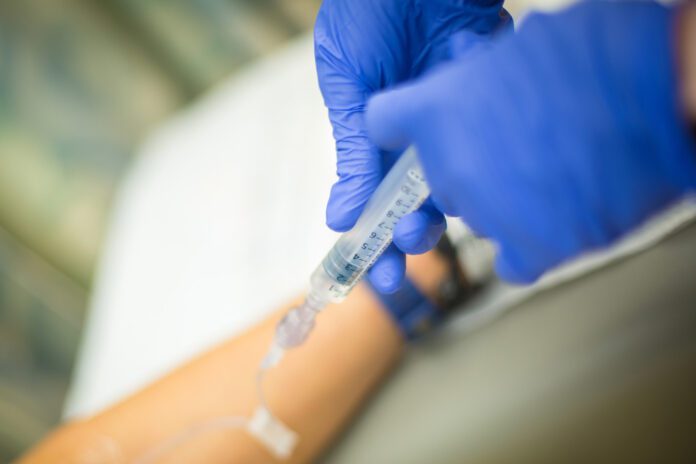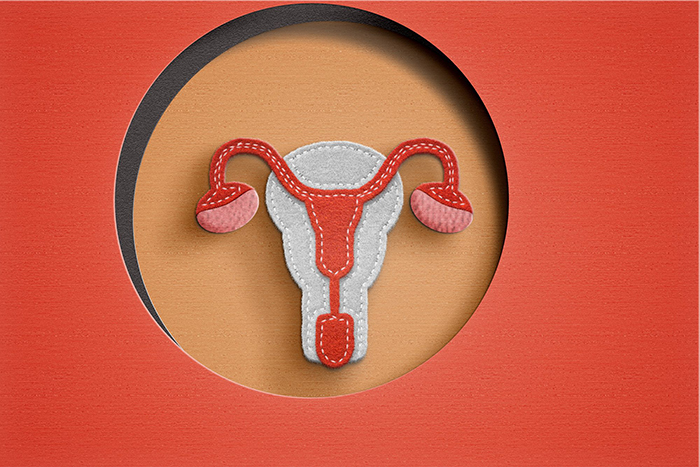Recently, we’ve been hearing about the serious shortage of certain widely used cancer drugs. For people whose cancer treatment depends on those drugs, it’s been a stomach-churning time of uncertainty and worry as they wonder whether they will have the lifesaving medications they need.
And oncology drugs aren’t the only medications in short supply. In June and July—the worst of the drug shortage in a decade—a survey of 1,123 pharmacists found that 309 drugs were running low, including amoxicillin, a commonly prescribed antibiotic, and stimulants often prescribed to treat ADHD.
But a shortage of cancer drugs stands out: if a drug is lacking, it may mean doctors must change a patient’s treatment plan. The treatments most affected by the shortage include platinum-based injectable drugs, carboplatin and cisplatin, which are used to treat breast cancer, gynecologic cancers, testicular cancer, head and neck cancers and bladder cancer. In 2023, a survey of 27 cancer care sites in the United States found that 93% of them reported a carboplatin shortage and 70% reported a cisplatin shortage.
Despite the shortages, all 27 sites indicated that they have been able to continue treating patients who need those drugs at the same dosages as before the shortage.
Winship’s Experience
“We have been very thoughtful about making sure that our patients have access to the care they need,” says Jonathan L. Kaufman, MD, medical director and section chief of the Winship Cancer Institute Ambulatory Infusion Centers. “We have done this with an approach that focuses on preparation, collaboration and transparency.”
Kaufman says his team monitors for national or international shortages. They have a full accounting of their inventory and know, on average, how much they use of each medication in a week, month or quarter. This gives them the ability to purchase medications according to their current need and the projected future supply required to treat all of Winship’s patients.
A dedicated team of pharmacists, pharmacy technicians and buyers—led by Winship’s Director of Pharmacy Ryan Haumschild, PharmD, MS, MB, and Director of Pharmacy Supply Chain Amit Shah PharmD, MBA—also monitor the landscape of drug shortages as products on shortage change frequently due to manufacturer issues or demand. Haumschild says, “Kalu Kalu, our pharmacy manager, also helps assess all medication stock across Winship as we work closely with our physician leadership and the Pharmacy and Therapeutics Committee to keep everyone updated when we experience a medication shortage.” He explains that if they must change how they prescribe or distribute medication, they also work with the ethics team to make sure that changes are equitable for all patients.
“When we first recognize there could be a supply issue,” says Haumschild, “we make our medical director aware, and then also make the Disease State Working Group lead physicians aware.” He says they identify what the impacts would be by cancer type, and then take steps to preserve medications by, for example, reducing waste. He adds, “We also look to these physicians for different dosing or medication treatment strategies that still preserve best-in-class care.”
Close coordination with Winship’s medication wholesaler and working directly with manufacturers to predict volume use also ensures Winship can sustain its medication supply, even in the event of national shortages. Haumschild’s team stays alert by discussing the latest trends with the FDA commissioner and other NCI-designated Comprehensive Cancer Centers. “Ultimately,” he says, “we take it upon ourselves to be familiar with inventory across all of Winship, and we work collaboratively across all treatment sites to make sure our patients get the medications they need.”
Drug Shortfalls Are Not New
Drug shortfalls come and go over the decades. The drugs most prone to shortages are generic medications that have been around long enough for their exclusive patents to have expired. This means that any manufacturer can produce the drugs. Several chemotherapies are generic, including oxaliplatin, cisplatin, doxorubicin and methotrexate.
Slender profit margins and tight competition mean only one or a few distributors buy and produce these drugs. When one of them goes under, it can disrupt the entire supply chain. Natural disasters also can disrupt the supply chain, as when Puerto Rico was hit by a hurricane that impacted the manufacturers on the island. Failing to meet FDA requirements is another reason that can cause disruption when production is halted until standards are met.
In September 2023, the Biden White House issued a statement on the matter titled “Strengthening the supply chain for cancer drugs.” At the time, it attributed the shortage of 15 cancer drugs to manufacturing and supply chain issues. The administration also emphasized that “ensuring every American has access to the tools and interventions that exist today to prevent, detect and treat cancer … is essential to achieving the Biden Cancer Moonshot goal of ending cancer as we know it.”
The Biden administration permitted the FDA to temporarily relax its stringent requirements for importing cisplatin from China, and to work with cancer drug manufacturers to identify opportunities to increase manufacturing capacity.
Kaufman says it’s important to bear in mind that a shortage doesn’t mean that a medication is unavailable.
It does mean, however, that if changes are not implemented, or there isn’t a new supply of the medication, then it’s possible the medication will not be available in the future. Fortunately, Kaufman says that Winship’s dedicated approach means everything possible is done to ensure patients receive the care and the drugs they need.
About Winship Cancer Institute of Emory University
Winship Cancer Institute of Emory University is Georgia’s only National Cancer Institute-designated Comprehensive Cancer Center, a prestigious distinction given to the top 3% of cancer centers nationwide for conducting cancer research and providing training that is transforming cancer care, prevention, detection and survivorship. Winship discovers, develops, delivers and teaches some of the world’s most effective ways to prevent, detect, diagnose and treat each patient’s unique cancer. Cancer care at Winship includes specialists with deep expertise and experience in cancer; multidisciplinary evaluation, treatment planning and care coordination that caters to each patient’s individual needs; therapies supported by the latest advances in cancer research; and comprehensive clinical trials and support services.




